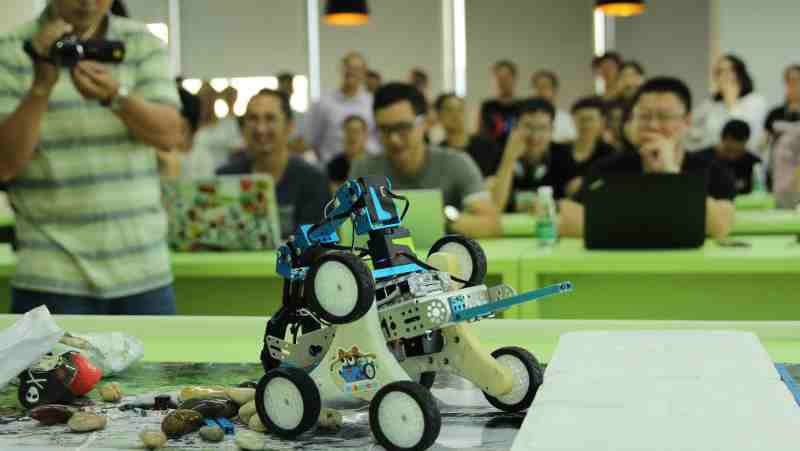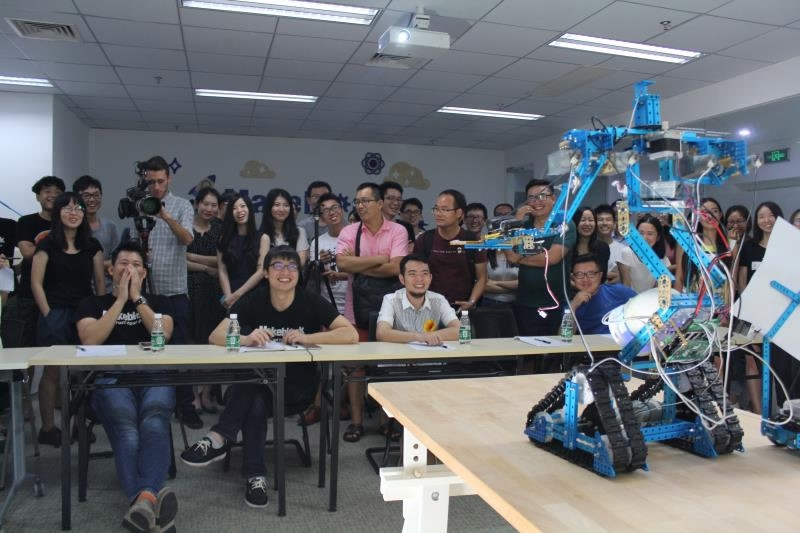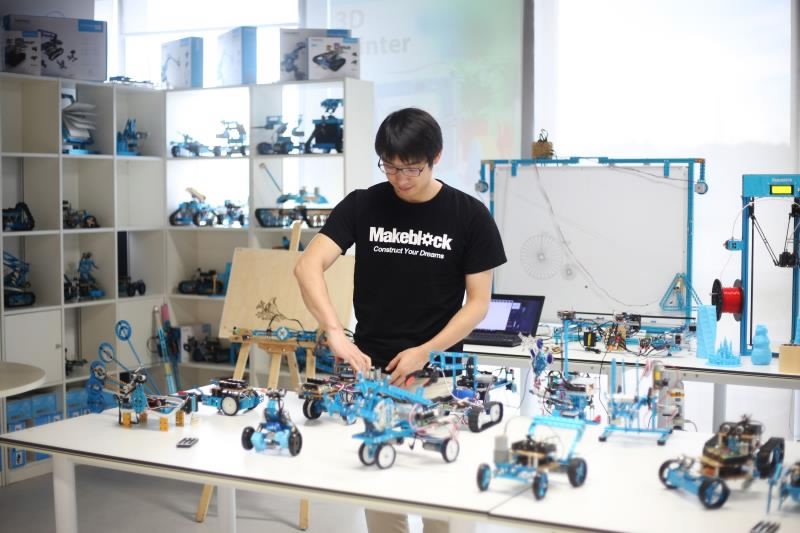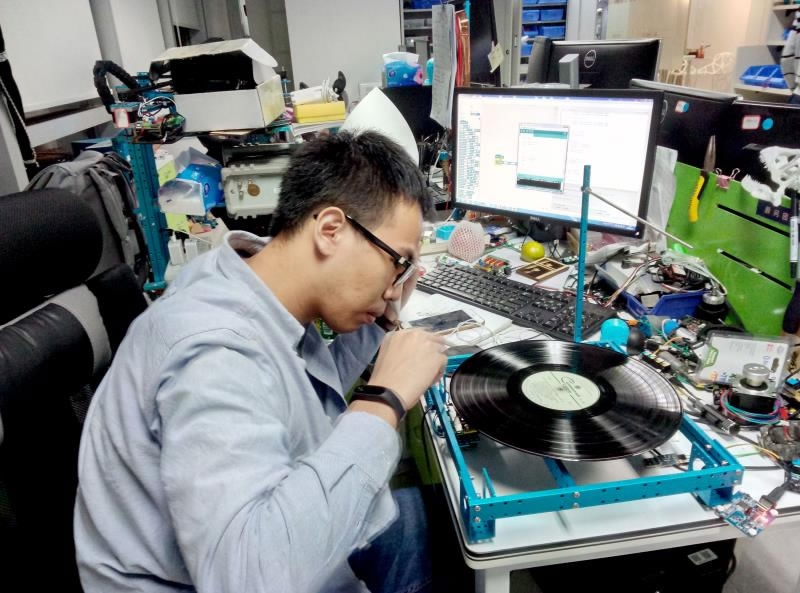
Opinions
14:30, 04-Oct-2017
Opinion: China’s people-management revolution
By Elliot Zaagman

Look around the 460 employees in Makeblock’s offices in Shenzhen and you might well wonder, “Where are all the adults?”
The company’s atmosphere of youthful energy is difficult to overlook. With an average age of 27, its workers are not far removed from the children and teenagers that make up most of their users.
Makeblock is a DIY robotics construction and platform for STEM education and its culture of fun, experimentation and innovation has helped it become one of China’s hottest – and coolest – young startups.

CGTN Photo
CGTN Photo
This fresh approach to work is increasingly common elsewhere in China’s dynamic tech startup scene.
While brutal conditions are still far from being a thing of the past for many of China’s working class, a growing number of young tech workers are experiencing, and in some cases expecting, a workplace that is engaging and rewarding beyond just a paycheck.
For forward-thinking businesses in China’s biggest cities, a people-management revolution is underway.
Looking beyond the “first pot of gold”
Traditionally, tech companies in China have been known to motivate workers through a fiercely competitive system of carrots and sticks.
Telecoms company Huawei is perhaps one of the best-known users of this approach.
“Huawei has typically looked for high-achieving students at good universities, but who come from smaller cities and less-wealthy families, looking for their ‘di yi tong jin’ because they know they will work hard and put up with lots of difficulties in order to make money,” explained a former employee.
Literally translated as “first pot of gold,” di yi tong jin refers to the first time someone is able to earn enough money to lift themselves and their families from poverty into a middle-class lifestyle.
For many tech firms, recruiting young and qualified workers requires a different approach.
While previous generations were willing to do just about anything to acquire wealth for their family, many of China’s millennials lack the same sense of desperation, largely because their parents have already established themselves in the middle class.
For these youngsters, incentive techniques simply do not have the same effect that they did in their parents’ workplaces.
To manage this generation, China’s business leaders are looking more and more to hire and manage for intrinsic motivation.
“We need our employees to be self-driven,” says Makeblock Founder and CEO Jasen Wang.

Founder and CEO of Makeblock, Jasen Wang. / CGTN Photo
Founder and CEO of Makeblock, Jasen Wang. / CGTN Photo
“The motivation of our employees can’t come from the boss, but has to come from the employee and their relationship with the customer.”
Startups like Makeblock are building corporate cultures where employees work not simply for the paycheck but for the sense of purpose they receive from the work itself.
Managing for collaboration and innovation
Like many east Asian countries, China has traditionally had a hierarchical, top-down business structure that places very little decision-making in the hands of junior employees.
While that style is effective in many organizations, it can be counter-productive in the tech and internet sector where product innovation and user-orientation are most important.
“The first role of the manager is as a service provider to their team,” says Jasen Wang.
“It’s our lower-level people who are doing most of the work, making the product, and interacting with the customer. It is the number one responsibility of our managers to make sure that they have everything that they need. Most of our people are very self-motivated, so our managers really should not have to be controlling much.”
A generation that wants to be heard
“These people didn’t have brothers or sisters. They are used to having the full attention of their parents and grandparents,” said one HR representative at a China-Europe joint venture.

CGTN Photo
CGTN Photo
“For many of them, they’re used to their authority figures listening to them when they speak.”
For many managers, this can be an annoying feature of a generation who they might view as entitled. However, this can also be managed in a way that brings about positive outcomes.
Makeblock does this by holding regular “Ask Me Anything” (AMA) sessions, in which employees anonymously submit questions, suggestions and complaints and Jasen Wang and other leaders read and answer these questions in a public forum.
“Sometimes the questions can be very harsh but they usually result in some kind of positive solution at the company,” explains Makeblock HR business partner, Iris Lin.
Activities like AMAs are valuable to a company like Makeblock. In addition to improving company policies, they provide a channel through which employees can productively offer suggestions.
The Chinese workplace has a reputation as a brutal and competitive place, and for many people that is still the case.
However, at offices throughout the country this is changing and that change is being driven not only by a market demand for innovation and service, but also by a younger generation that wants to work for more than just money.
This has sparked a reimagining of the employer-employee relationship, from the traditional commanders and soldiers model to co-collaborators. This is the fundamental shift behind China’s people-management revolution.
(The author is a corporate trainer, executive coach, and writer based in Beijing. The article reflects the author’s opinion, and not necessarily the views of CGTN.)

SITEMAP
Copyright © 2018 CGTN. Beijing ICP prepared NO.16065310-3
Copyright © 2018 CGTN. Beijing ICP prepared NO.16065310-3